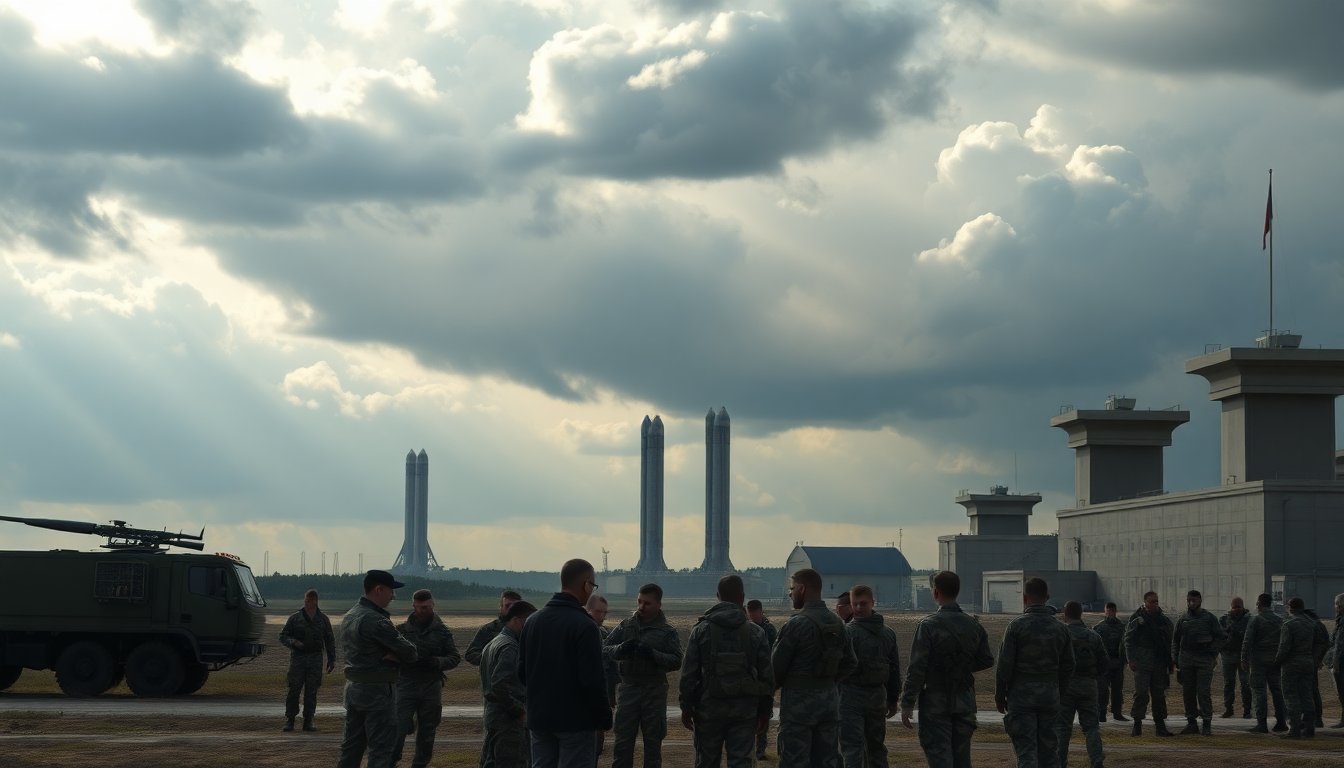Table of Contents
The geopolitical landscape is shifting as Russian President Vladimir Putin has directed his government to prepare for the potential resumption of nuclear weapons testing. This decision follows remarks from U.S. President Donald Trump, who hinted at the possibility of the United States restarting atomic tests after a three-decade hiatus. The ramifications of these actions could significantly impact global security and arms control efforts.
Context of rising tensions
During a recent meeting with his Security Council, Vladimir Putin stated that Russia would only contemplate resuming nuclear testing if the United States takes similar steps. He instructed the Ministry of Foreign Affairs, the Ministry of Defense, and other pertinent agencies to gather intelligence and conduct a comprehensive analysis of the situation. This statement highlights the tit-for-tat dynamics characterizing current international relations, especially regarding nuclear capabilities.
U.S. position on nuclear testing
During a visit to South Korea, former President Trump suggested that the U.S. might consider restarting nuclear testing, a notable change since the last detonation in 1992. He mentioned that such tests would be conducted on an “equal basis” with Russia and China. However, U.S. Energy Secretary Chris Wright later emphasized that the proposed tests would not include actual nuclear explosions. This clarification indicates a shift towards non-detonation testing methods, reflecting a more cautious approach to nuclear capabilities.
The impact of the Comprehensive Nuclear Test Ban Treaty
The situation surrounding nuclear weapons is further complicated by the Comprehensive Nuclear Test Ban Treaty, an essential agreement signed by the U.S. but not yet ratified. Since the treaty’s creation, most nuclear-armed nations have followed its guidelines, with North Korea standing out as a significant exception. This adherence has established a fragile balance, but the risk of its collapse increases as countries respond to one another’s military actions.
Russia’s nuclear capabilities
Recent developments in Russia’s nuclear arsenal highlight Moscow’s determination to maintain a competitive edge. Successful tests of new missile systems demonstrate this commitment. President Vladimir Putin’s announcement of a nuclear-powered cruise missile and an underwater drone reflects a broader strategy aimed at enhancing deterrent capabilities.
This strategy sends a clear signal to Washington, especially amid ongoing conflicts like the situation in Ukraine. In this context, military capabilities are crucial in shaping diplomatic negotiations.
Strategic implications
In light of escalating military threats, President Vladimir Putin’s recent directive to prepare for potential nuclear testing reflects a response to both former President Donald Trump’s statements and the modernization of U.S. nuclear arsenals. Defense Minister Andrei Belousov emphasized that these developments significantly increase the risks for Russia. He has suggested a renewed focus on the Novaya Zemlya archipelago, a historic site for Soviet nuclear tests, as a possible location for future detonations.
The potential consequences of these actions could be far-reaching, possibly sparking a new arms race. With both Russia and the United States indicating their willingness to enhance nuclear capabilities, the chances for arms control and diplomatic solutions appear increasingly fragile. It is vital to maintain open communication and encourage dialogue to address the risks associated with these developments.
The balance of power regarding nuclear weapons is at a critical juncture. The potential for either nation to resume testing poses significant questions for global security. As Putin and Trump navigate this precarious situation, the world remains vigilant, understanding that the stakes have never been higher.


